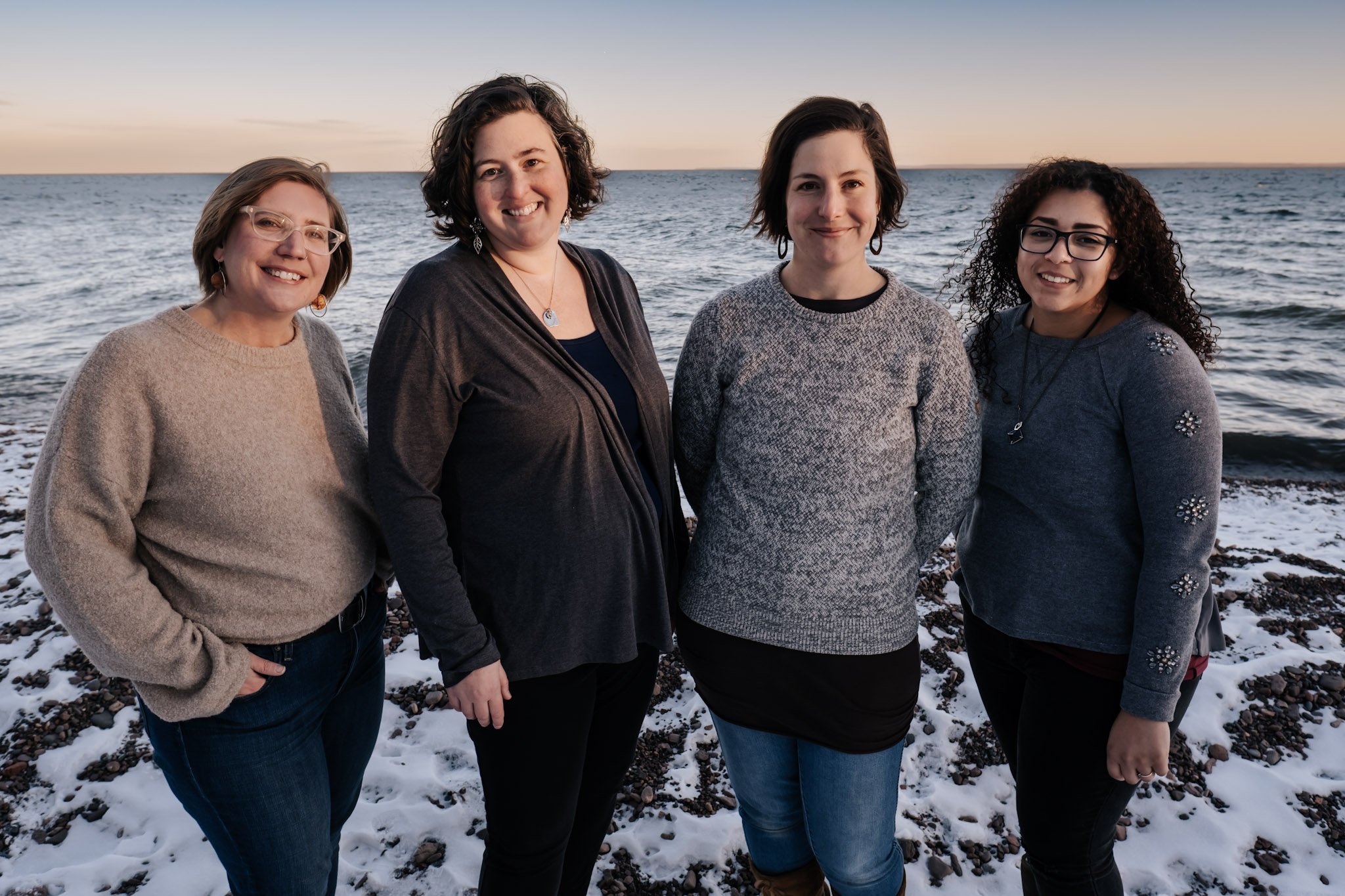Supporting you through it all
We provide birth and postpartum focused care & education for expectant families in the Twin Ports. We support pregnant people and families through pregnancy, birth, and postpartum. Our services include birth education, birth doula support, placenta encapsulation, and postpartum support.
We offer you the information, education, and support so that you can make informed decisions about your body and your birth. We honor your choices and wishes for your birth. We support you no matter how and where you want to give birth. We support you through it all.
Every day we take steps to move mountains. Some people in Minnesota don’t receive the same level of care and support, and we are here to help. Our BIPOC & LGBTQ+ birthers in greater Minnesota are faced with structural inequalities that lead to worse health outcomes. Birthers living rurally have to travel long distances for care and have lower access to health resources than those living in more populated areas. As doulas, we know we can advance birth equity by MORE doula care and MORE diversity on our doula teams.
From a two-time Doulas of Duluth client:
“Comprehensive services, going above and beyond expectations to provide exceptional care and education to make your own choices and decisions regarding prenatal, birth, baby, and postpartum and support in carrying those out.”
Working as a team benefits our community and our clients because it offers more experience, wisdom and knowledge behind each of our doulas. We take care of each other so we can better take care of you!
Our doulas create, learn, and grow together. We back each other up for births and help step up when another doula needs support. We are life-long learners and we evolve as the culture and information around birth evolves. We value rest as much as we value our commitment to our clients and our community.
As your birth doulas, we will be at your side through pregnancy, birth and postpartum. We will be there to help navigate your vision for birth and postpartum for you and your partner.
Our Collaborative Approach

A few things we stand by…
Everyone deserves a doula
We live on stolen Anishinaabe land
We commit to addressing health equity
We honor individual spiritual and religious beliefs
We support diverse families
We stand up for your choices
We provide birth education for parents, aspiring doulas and continuing education for active doulas. Check out our offerings and reach out for more details and dates for upcoming classes and trainings
Our Stories - check out our monthly blog
A New Option for Birth Education in Duluth: Birthing from Within
Birthing from Within classes and coaching are now offered in Duluth! Childbirth instructor, guide, and doula Christine D’Esposito brings more than 20 years of experience to our community. She also brings the wisdom of direct mentorship from the creator of Birthing from Within – Pam England – to mentor parents and birth workers on their journeys.
Birthing from Within centers around the idea of the cyclical heroic journey – and it’s not just for pregnant people. Birth workers have their own journeys. And the journeys for birthing people and parents don’t stop with the initiation of becoming a parent of a newborn. They continue to evolve with a growing and changing family. Unlike the traditional hero’s journey of Joseph Campbell that some may be familiar with, Birthing from Within recognizes that we are all continuously cycling through the stories of our lives.
Birthing from Within childbirth preparation helps birthing people and partners draw on their own inner wisdom to meet challenges. It helps birthers learn about themselves and practice techniques for navigating intense experiences. By practicing, skills become embodied and easier to use during the trials of labor and sleepless nights – even when our rational minds have taken a back seat to instinct.
BfW is also unique in the way it brings in birth art, labyrinths and archetypes so that participants can access their inner knowing. They can also weave their own stories – including weaving new stories that help them get unstuck and move through the challenges of birthing and parenting.
Christine is now offering classes in our community.
Coping Methods and Support for Labor and Birth offers instruction and practice with mindfulness, positions, comfort measures, including hands-on support, and partner tips for labor and birth.
5-Week Birthing from Within Childbirth Education is a series that explores the physical, mental, and emotional experience of labor, birth and postpartum. It includes hands-on practice and shares multiple approaches to the birth experience.
To learn more and register for Birthing from Within classes, visit the Doulas of Duluth childbirth education page.
Christine also offers classes for birth workers. For more information, please contact Doulas of Duluth at connect@doulasofduluth.com.



